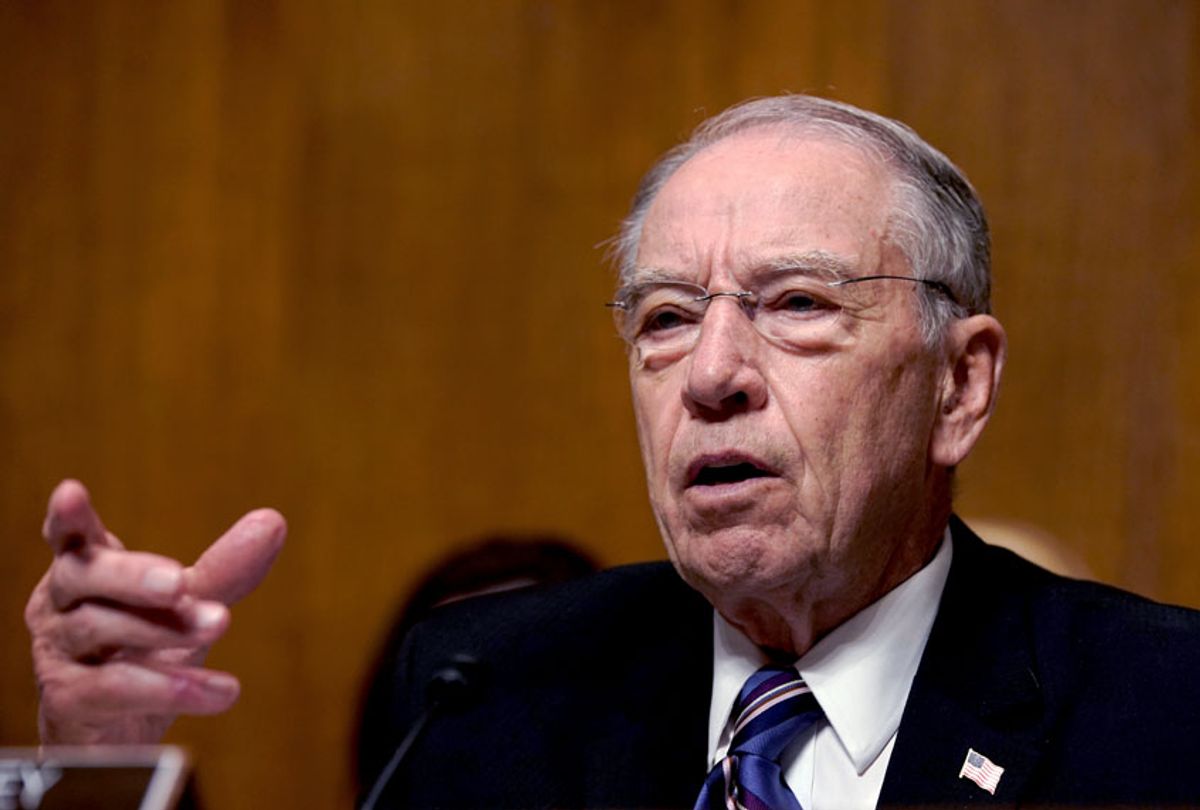Senate Finance Committee Chairman Chuck Grassley, R-Iowa, defended the anonymous whistleblower whose complaint of phone call between President Donald Trump and Ukrainian President Volodomyr Zelensky pushed Democrats in the House of Representatives to open an official impeachment inquiry.
“This person appears to have followed the whistleblower protection laws and ought to be heard out and protected. We should always work to respect whistleblowers’ requests for confidentiality,” Grassley said in a statement to NBC News.
In contrast to Grassley, many prominent members of the Republican Party and the conservative media have rushed to undermine the whitlseblower. Although he refrained from mentioning Trump by name, Grassley said that “no one should make judgments or pronouncements without hearing from the whistleblower first and carefully following the facts.”
Nontheless, Grassley was critical of the “uninformed speculation wielded by politicians or media commentators as a partisan weapon,” a comment which directly rebuked Trump’s public comments, including a tweet that read “this accuser, the so-called ‘Whistleblower,’ represented a perfect conversation with a foreign leader in a totally inaccurate and fraudulent way.”
Grassley addressed head on the right-wing criticisms of the whistleblower, namely that he or she was primarily basing the complaint on second-hand information. The Iowa Republican wrote that “when it comes to whether someone qualifies as a whistleblower, the distinctions being drawn between first- and second-hand knowledge aren’t legal ones. It’s just not part of whistleblower protection law or any agency policy.”
The Republican senator's discussion of whistleblower protection law seemed to address a report by the conservative publication The Federalist, which asserted that the formal whistleblower complaint form had been secretly rewritten to allow second-hand complaints. Grassley’s defense was earlier backed up by Inspector General Michael Atkinson, who wrote that “although the form requests information about whether the complainant possesses first-hand knowledge about the matter about which he or she is lodging the complaint, there is no such requirement set forth in the statute.”
The State Department's inspector general is expected to give lawmakers an urgent "briefing" Wednesday amid a standoff between Secretary of State Mike Pompeo and House Democrats over Trump's communications with Ukraine, news which prompted former Sen. Claire McCaskill, D-Mo., to highlight Grassley's record on whistleblowers.
“I worked with a lot of inspectors general. I did a lot of legislation, ironically with Chuck Grassley, on whistleblowers and inspectors general, ” McCaskill said Tuesday on MSNBC's "The Last Word" with Lawrence O’Donnell. "And for an inspector general to step up like this — because typically they want to go through protocol and procedures — means something big is up."
Notes taken about the phone call between Trump and Zelensky reveal that the president solicited the foreign leader to to dig up dirt on a key political opponent heading into the 2020 election: Joe Biden. The Trump administration withheld $391 million in military aid around the same time but denies there was any connection between the two actions.
Senate Majority Leader Mitch McConnell, R-Ky., conceded Tuesday that if the House votes to impeach the president, he would have “no choice" but to take up impeachment.
"How long you are on it is a different matter, but I would have no choice but to take it up based on a Senate rule on impeachment," the Republican leader said.
According to a tally taken last week by NBC News, 225 members of the 235 member Democratic House caucus would support impeaching the president, more than enough to successfully do so. For the president to be convicted in the Senate, however, at least 20 Republican senators would have to vote with the 45 Democrats and two Democratic-leaning independents to remove him from office. Most political experts consider that to be very unlikely.

Shares